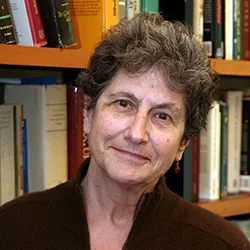Swarthmore's Comparative Literature Program takes an interdisciplinary approach to the study of literature, using different languages to study works from distinct eras. The program draws upon diverse literary and cultural traditions spanning the globe. Students of comparative literature read extensively as they sharpen their critical thinking, consider the importance of the differences and similarities among languages, and analyze the influence of culture on language. The study of comparative literature is perfect for students who love literature, have a strong background in foreign languages, and are interested in interdisciplinary study.
Students majoring in comparative literature typically choose courses from the classics (Greek and Latin), English, modern languages and literatures (Arabic, Chinese, French, German, Japanese Russian, and Spanish), and theater departments. Relevant coursework examines periods, genres, themes, movements, criticism, and theory from an international and multicultural perspective, exploring the ways literature relates to other spheres of human activity. The majority of a student's literary study is conducted with texts in the original languages.
Students may elect to major or minor in comparative literature as course majors, or as part of Swarthmore's Honors Program, thus selecting an academic program that emphasizes seminar-style learning. In either track, the academic program is quite flexible, allowing students to take the lead in designing a course of study that best matches their academic interests, with the close support of faculty advisers. Foreign study is a popular component of a student's academic program, providing an opportunity to study in an immersive language environment. The culminating experience of the program for all comparative literature majors is writing a thesis paper in the senior year.
Senior comparative literature majors develop a thesis on a topic of their choice, covering work in at least two languages. Faculty advisers continue to work in close consultation with students throughout this assignment. Examples of student theses include: "Writing the Colonized: Language and Identity in Post-Colonial Literature," "The Irresistible Pull of Catastrophe: The Struggle to Survive in Dostoevsky and Faulkner," and "Modern Metamorphoses: Transformations of the Body in Kafka and Joyce."
Swarthmore's Comparative Literature Program is an excellent choice for students who seek to understand literature in broad terms as well as those who are interested in specific examples of literary comparison, grounded in criticism and theory.






